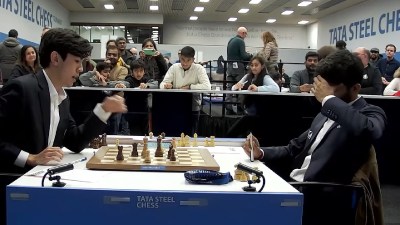Oiling the way
IT is just as well that even as it kept judicial and legislative doors open, the Cabinet Committee on Disinvestment CCD has opened an exec...

IT is just as well that even as it kept judicial and legislative doors open, the Cabinet Committee on Disinvestment CCD has opened an executive window to pursue the privatisation of petroleum retailing. The Supreme Court verdict on the privatisation of public sector petroleum retailing companies, HPCL and BPCL, as has been emphasised by the judiciary itself, only pertains to such PSUs where parliamentary sanction is deemed necessary. The court has clarified that its decision does not bind the government from pursuing privatisation in other public sector entities. Hence, even as it has kept its legal and legislative options open, the CCD has correctly recommended to the Union cabinet a proposal that can be pursued by the executive without legislative sanction.
Apart from making a point of principle this decision underscores three relevant points. First, that the process of privatisation has not been halted by the Supreme Court verdict. This is an important political and market signal. Second, that petroleum retailing is not a strategic area of business and that the government is willing to pursue privatisation in this area without legislative delays. Third, that promoting competition in petroleum retailing is a worthy political objective. The last is an important point that the CCD has implicitly made and which the Cabinet must endorse by accepting the proposal on the privatisation of Indian Oil Corporation8217;s retail business. Having done this, the government should not shy away from seeking a judicial review of the Supreme Court verdict because there are important gaps in its that deserve to be clarified and cleared. The most important weakness of the court8217;s
verdict on HPCL/BPCL is its interpretation of the relationship between public enterprises and the Consolidated Fund of India. Union Disinvestment Minister Arun Shourie was right to interpret the Court8217;s verdict as a question mark on all disinvestment in the past. The verdict has not shown a correct appreciation of the role of the Consolidated Fund of India and this requires further examination and clarification.
The government may shy away from also seeking a parliamentary sanction for privatisation because of the ambiguous stance of the Congress that is happy to hunt with the hounds and run with the hares on privatisation. While its governments at the state level unabashedly pursue privatisation, its members in the Rajya Sabha have decided to block any legislative sanction when it comes to oil PSUs and banks. The Congress must give up its double standards. However, it seems quite content in its duplicity and this may discourage the Union government from testing the legislative waters. A pity.
- 01
- 02
- 03
- 04
- 05






























